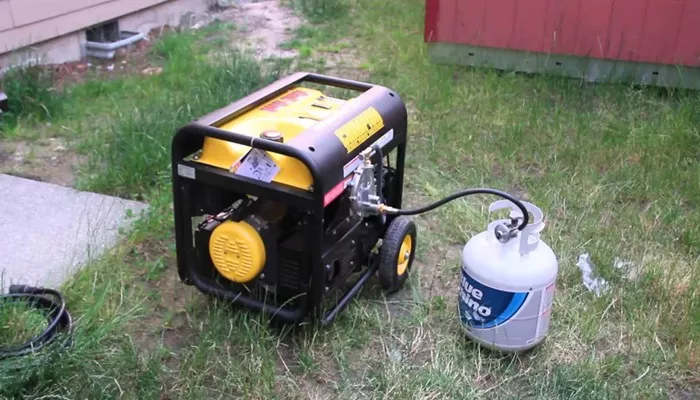Solar generators are an excellent solution for home backup power, off-grid living, or reducing electricity bills. Unlike traditional gas generators, solar generators use sunlight to produce clean, renewable energy. They are quiet, emission-free, and require minimal maintenance.
In this guide, we’ll explore the best solar generators for home use, how they work, and key factors to consider before buying one.
How Do Solar Generators Work?
A solar generator is a system that converts sunlight into usable electricity. Here’s how it works:
Solar Panels : Capture sunlight and convert it into direct current (DC) electricity.
Charge Controller : Regulates the voltage and current from the solar panels to prevent battery overcharging.
Battery Storage : Stores the electricity in a lithium-ion or lead-acid battery for later use.
Inverter : Converts DC power into alternating current (AC) power, which is used by most household appliances.
Solar generators can power essential devices like refrigerators, lights, phones, and medical equipment during outages.
Key Features to Look for in a Solar Generator
Before buying a solar generator, consider these factors:
Battery Capacity (Watt-Hours, Wh)
- Measures how much energy the generator can store.
- A higher Wh rating means longer runtime for your devices.
- Example: A 500Wh generator can power a 50W fan for 10 hours.
Power Output (Watts, W)
- Determines what appliances the generator can run.
- Small devices (phones, lights) need 10-100W.
- Large appliances (refrigerators, power tools) need 1,000W+.
Solar Input (Watts, W)
- Higher solar input allows faster recharging.
- A 200W solar panel will charge a battery faster than a 100W panel.
Battery Type
Lithium-ion (LiFePO4) : Lightweight, long lifespan (3,000+ cycles), efficient.
Lead-acid : Cheaper but heavier and shorter lifespan (500 cycles).
Expandability
Some generators allow extra batteries or solar panels for more power.
Portability
If you need mobility, choose a lightweight model with wheels or handles.
Best Solar Generators for Home Use in 2024
Here are the top solar generators for different needs:
Best Overall: Bluetti AC300 + B300
- Capacity: 3,072Wh (expandable to 12,288Wh)
- Output: 3,000W (6,000W surge)
- Solar Input: 2,400W
- Battery Type: LiFePO4
- Pros: High capacity, fast solar charging, modular design.
- Cons: Expensive, heavy.
- Best for: Whole-home backup power.
Best Budget: Jackery Explorer 1000
- Capacity: 1,002Wh
- Output: 1,000W (2,000W surge)
- Solar Input: 800W
- Battery Type: Lithium-ion
- Pros: Affordable, portable, reliable.
- Cons: Not expandable, shorter battery life.
- Best for: Camping and emergency power.
Best for Off-Grid Living: EcoFlow Delta Pro
- Capacity: 3,600Wh (expandable to 25,000Wh)
- Output: 3,600W (7,200W surge)
- Solar Input: 1,600W
- Battery Type: LiFePO4
- Pros: Huge capacity, fast charging, smart app control.
- Cons: Very heavy, high cost.
- Best for: Off-grid homes and long-term power needs.
Best Portable: Goal Zero Yeti 1500X
- Capacity: 1,516Wh
- Output: 2,000W (3,500W surge)
- Solar Input: 600W
- Battery Type: Lithium-ion
- Pros: Lightweight, durable, easy to use.
- Cons: Slower solar charging.
- Best for: RV trips and portable power.
Best for Small Homes: Renogy Phoenix 200
- Capacity: 200Wh
- Output: 200W
- Solar Input: 100W
- Battery Type: Lithium-ion
- Pros: Compact, affordable, USB-C charging.
- Cons: Low power, not for large appliances.
- Best for: Charging phones, laptops, and small devices.
How to Choose the Right Solar Generator for Your Home
Calculate Your Power Needs
- Make a list of essential devices and their wattage.
- Add up the total watt-hours needed per day.
Check Solar Charging Speed
If you rely on solar, choose a generator with high solar input.
Consider Future Expansion
If your power needs grow, pick an expandable system.
Compare Battery Life
LiFePO4 batteries last longer but cost more.
Look for Safety Features
Overcharge protection, temperature control, and pure sine wave inverters are important.
Conclusion
Solar generators are a smart investment for backup power, emergencies, and off-grid living. The best model depends on your energy needs, budget, and portability requirements. For most homes, the Bluetti AC300 or EcoFlow Delta Pro are excellent choices due to their high capacity and expandability. For budget buyers, the Jackery Explorer 1000 offers great value. By understanding battery capacity, power output, and solar charging, you can pick the perfect solar generator for your home. Would you like recommendations based on your specific power needs? Let us know in the comments!

